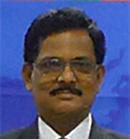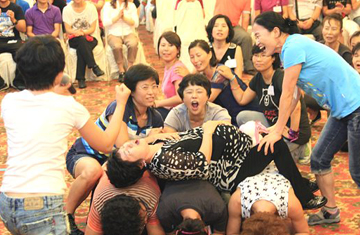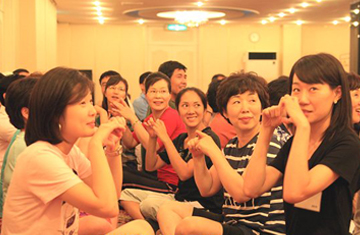The need for recreation education can be found in physical, emotional and psychological, social and education aspects.

ATTITUDE OF RECREATION LEADERS, SPORTS PERSONS AND PHYSICAL EDUCATION PROFESSIONALS TOWARDS THE SIGNIFICANCE OF WREA IN INDIAN HI-TECH SOCIETIES(DOWNLOAD)
President, India Chapter of the WREA : Dr. Satchidananda Behera
The effect of the leisure and recreational education
1. Recreation and Its Physical Aspects

Educating with all kinds of activities such as sports, physical education, and games, entails physically moving. Recreation activities greatly help to maintain health throughout life as babies, children, youth, middle-aged, and old-aged. Roux emphasized the importance of physical activities as appropriate use of the body can help us maintain our body or develop and strengthen it further. Or else, the body deteriorates and becomes weaker.
The development of transportation and goods has diminished physical
activities as do computer-based games, static leisure activities causing
obesity and modern illnesses. Students nowadays have bigger bodies, but
their consumption of oxygen has diminished, body fat increased, and
muscles and flexibility reduced, resulting in weaker bodies. Recreation
largely entails physical activities, stimulating good metabolism and
thus greatly helping to maintain physical health. Also, the joy from
recreation stimulates the respiratory, digestive and excretion systems
as well as other systems, stimulating the body’s development.
2. The need for recreation in terms of the emotional and psychological aspects
Education nowadays is based on the accumulation of knowledge or centered on entrance to college and grades, without full personal education for sound emotions and personality. For sound emotional and good personality develepment, recreation education should help to satisfy fundamental human desires and relieve psychological stress in order to form a bright and healthy personality. If tension, insecurity, restlessness, and fear are not released but suppressed, they show up as dissatisfaction, complaints, anger, destruction, aggression and alienation, causing anti-social behavior.
If human natural instincts are externally suppressed from an early age, the resulting dissatisfaction continues until adulthood and looks for an outlet. To prevent this, the importance of game education to control tension and release suppressed emotions since early age is emphasized. Recreation provides psychological stability expressed as joy, satisfaction, relaxation, alleviation, playing the role of an outlet to express human being’s fundamental desires and bringing emotional soundness and psychological stability full of bright confidence and desires.
3. The need for recreation in terms of its social aspects
Matias emphasized the role of physical activities that centers on the social aspect of interpersonal relations with friends. Children raise their social adaptability by honestly expressing themselves through physical activities. In schools introverted and timid children often do not get along with others and are ostracized. On the other hand, some ostracize others due to a lack of an embracing and understanding attitude of others with schools suffering due to a lack of education on interpersonal relations and sociability.
Various recreation activities have many game elements that increase sociability and social adaptability such as the spirit of cooperation, independence, equality, sacrifice, volunteering, law abiding and etiquette. Therefore, through recreation, our teachers can achieve their objective of increasing sociability with friends. They should often provide recreation activities in which students build friendships and understand each other instead of being exclusive.

Of recreation activities, creative group recreation dance, training on communal living, teamwork games and praising games, in particular, are effective in helping students open their hearts to friends they are not close to.
Recreation activities have the characteristic of helping everyone build close harmony, playing an important role in fostering social adaptability and improving interpersonal relations. Over many years, I have trained about 70,000 recreation leaders nationwide from all social classes in terms of occupation, age, gender and education levels. From my experience in recreation training, participants at first express concern that they will have difficulties carrying out communal and group activities when living and eating with strangers. However, once recreation training starts and after a little while, such concerns dissipate and by the end of the training, they find it difficult parting with other participants and some cry. All activities are kept preciously as memories and harmony gatherings and even after the training, they continue meeting to exchange information and build on their relationships. I have witnessed the social effect of recreation. Such a simple example testifies to the effects of recreation on raising sociability and social adaptability through group activities.
4. The completion of a person through holistic education to fulfill educational needs
As mentioned earlier, various kinds of recreation activities play many roles physically, emotionally, psychologically and socially. Knowledge-based education has its limits in forming a complete human being. Various king of recreation, incloding games and sports, help to maintain physical health, emotional and psychological and stability, and to form an active and positive personality, thus enhancing confidence. Group activities increasie sociability by making participants engage in activities of cooperation, volunteering and consideration, helping to foster emotionally and socially healthy people. The role played by recreation contributes to self-accomplishment and self-completion as a complete human being.















